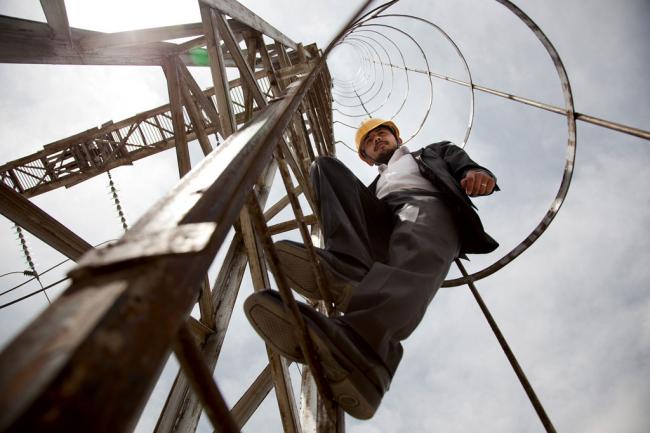
World's jobless to rise amid economic uncertainty, growing inequality – UN labour report
“We are facing the twin challenge of repairing the damage caused by the global economic and social crisis and creating quality jobs for the tens of millions of new labour market entrants every year,” said ILO Director-General Guy Ryder.
According to the report, global growth domestic product (GDP) growth reached a six-year low last year, well below the rate that was projected in 2015. Forecasters continue to revise their 2017 predictions downwards and uncertainty about the global economy persists, generating worry among experts that the economy will be unable to employ a sufficient number of people and that growth will not lead to inclusive and shared benefits.
Throughout 2017, global unemployment is expected to rise by 3.4 million. The increase, while a modest 5.7 to 5.8 per cent, is due to deteriorating labour market conditions in emerging countries – particularly those in Latin America and the Caribbean. However, unemployment is expected to fall in developed countries – especially in Northern, Southern, and Western Europe, the United States, and Canada.
In addition, the figure of 1.4 billion people who are employed in vulnerable working conditions is not expected to decrease. That number represents 42 per cent of all employment for 2017.
“Almost one in two workers in emerging countries are in vulnerable forms of employment, rising to more than four in five workers in developing countries,” said Steven Tobin, ILO Senior Economist and lead author of the report. That statistic is even worse for emerging countries. Those living in Southern Asia and sub-Saharan Africa are facing the greatest risk.
While the number of people living in poverty has been declining in recent years, rates of progress have begun to slow and are expected to continue to diminish in 2017. In developing countries, the rate of poverty is actually increasing.
Since 2009, the percentage of the working-age population willing to migrate abroad for work has risen in almost every region in the world. That trend was most prominent in Latin America, the Caribbean, and Arab States.
The report also points out a number of social inequalities that are creating barriers to growth and prosperity. Gender gaps in particular are affecting the labour market. In Northern Africa, women in the labour force are twice as likely as men to be unemployed. That gap is wider still for women in Arab States. As a result of these and other social inequalities across a wide range of demographics, the ILO estimates that the risk of social unrest or discontent is growing in almost all regions.
“Economic growth continues to disappoint and underperform – both in terms of levels and the degree of inclusion. This paints a worrisome picture for the global economy and its ability to generate enough jobs,” said Ryder. “Persistent high levels of vulnerable forms of employment combined with clear lack of progress in job quality – even in countries where aggregate figures are improving – are alarming. We need to ensure that the gains of growth are shared in an inclusive manner.”
The ILO advocates policy approaches that address root causes of secular stagnation as well as structural impediments to growth.
“Boosting economic growth in an equitable and inclusive manner requires a multi-faceted policy approach that addresses the underlying causes of secular stagnation, such as income inequality, while taking into account country specificities,” said Toobin.
Such progress, the ILO emphasized, is only possible through international cooperation. A coordinated effort to provide fiscal stimuli and public investments would go a long way to provide an immediate jump start to the global economy and could eliminate an anticipated rise in unemployment for two million people.
Photo: World Bank/Graham Crouch
Source: www.justearthnews.com
Support Our Journalism
We cannot do without you.. your contribution supports unbiased journalism
IBNS is not driven by any ism- not wokeism, not racism, not skewed secularism, not hyper right-wing or left liberal ideals, nor by any hardline religious beliefs or hyper nationalism. We want to serve you good old objective news, as they are. We do not judge or preach. We let people decide for themselves. We only try to present factual and well-sourced news.







